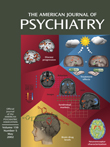Relapse and recovery in the addictions refer to patient-centered, posttreatment events that signal the success or failure of the treatment effort. The 50 contributors to this volume have furnished us with a compendium of work on this topic. Older studies emphasized pretreatment demographic and clinical factors that predict relapse or recovery. The studies of some of the authors included in this book have carried the field to its next logical step: identifying treatment factors that minimize relapse and favor recovery.
The 17 chapters address many subjects relevant to the course and care of the addictions: self-help groups, coerced treatment, case management, motivational interviewing, contingency contracting, pharmacotherapy strategies and agents, and the relative efficacy of the different social pressures or psychological rationales for maintaining recovery. Reviews of the literature are not merely described but also critiqued. The field itself receives criticism for its reluctance to employ or replicate promising therapies (e.g., disulfiram for cocaine abusers who drink, emetic aversive conditioning in cocaine addiction). The spiritual and self-help dimensions of recovery and relapse get some attention. The editors, in selecting chapter authors, have taken a holistic approach in relating relapse and recovery to a wide range of disparate factors: the environment, the variable courses of addiction, available pharmacotherapies, and the criminal justice system. In guiding the authors, the editors underscored the importance of theory to the entire enterprise.
Clinical investigators of the addictions will want to read selectively from this volume. Its emphasis on critique of past studies, theory, sampling, and methods of data collection will appeal to this audience. For those new to the field, the authors cite hundreds of studies and include many lucid tables and figures. In several places, authors highlight the kind of studies that they believe are needed.
Practitioners, however, will not perceive obvious new ways of reducing relapse and enhancing recovery beyond those already in the literature. This is not a “how to” book. As several authors make clear, we are still struggling with elemental considerations, such as agreement on criteria for relapse versus lapse versus recovery. In their meta-analyses, several authors point out the discrepancies and failures to replicate that have dogged progress in the addiction field.
Predictably, the authors have to stress certain dimensions of addiction to narrow their topic. Cocaine and heroin receive primary attention; tobacco, alcohol, and cannabis are mentioned in passing. Addicted adolescents get an entire chapter; women and middle-class men receive short shrift. The chapter on research on relapse and recovery in Europe contains important and interesting data; the ample literature from Asia is virtually ignored. Urban addicts in the public sector occupy center stage; rural addicts and those seen in private practice are seldom mentioned. One chapter on managed care nicely examines the potential advantages and liabilities of minimizing relapse in that setting but falls well short of a manifesto that would convince the fiscal czars dominating our national private health care.
In sum, the authors have done a service to the field by pointing up our limited knowledge regarding treatment factors that affect the courses of addiction.

